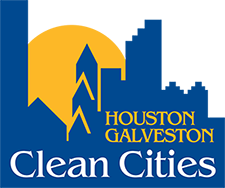Bipartisan Infrastructure Law (BIL)
Numerous grant opportunities are available under the Bipartisan Infrastructure Law (BIL). Many focus on alternative fuel projects including electric powered vehicles and infrastructure.
United States Department of Transportation
2025 Port Infrastructure Development Program (Closes April 30, 2025)
This Notice of Funding Opportunity (NOFO) was mistakenly removed on January 28, 2025. No changes were made to the original December 20, 2024, publication. MARAD will publish an amended NOFO consistent with new Administration priorities on Grants.gov. Once MARAD publishes the amended NOFO, the application deadline will be extended by the number of days between the initial solicitation (December 20, 2024) and the amendment, consistent with section 3511 of the FY 2025 National Defense Authorization Act.
Accelerated Innovation Deployment (AID) (Closes May 26, 2026)
The AID Demonstration program provides funding as an incentive for eligible entities to accelerate the implementation and adoption of innovation in highway transportation. The AID Demonstration program is one initiative under the multi-faceted Technology and Innovation Deployment Program (TIDP) approach providing funding and other resources to offset the risk of trying an innovation. SEE YOUR METROPOLITAN PLANNING ORGANIZATION!
United States Environmental Protection Agency
Clean Ports Program (Closes September 30, 2027)
The Inflation Reduction Act of 2022 provides EPA with $3 billion to fund zero-emission port equipment and technology and to help ports develop climate action plans to reduce air pollutants at U.S. ports. This new funding program will build on EPA’s Ports Initiative that helps our nation’s ports, a critical part of our infrastructure and supply chain, address public health and environmental impacts on surrounding communities. EPA anticipates this new funding opportunity will become available for application through a notice of funding opportunity (NOFO) released in late winter 2024.
Department of Energy
Electric Vehicle (EV) and Fuel Cell Electric Vehicle (FCEV) Tax Credit
Tax credits to individuals who purchase of electric vehicles and/or fuel cell electric vehicles.
Alternative Fuel Excise Tax Credit
A tax incentive is available for alternative fuel that is sold for use or used as a fuel to operate a motor vehicle. A tax credit in the amount of $0.50 per gallon is available for the following alternative fuels: natural gas, liquefied hydrogen, propane, P-Series fuel, liquid fuel derived from coal through the Fischer-Tropsch process, and compressed or liquefied gas derived from biomass. For propane and natural gas sold after December 31, 2015, the tax credit is based on the gasoline gallon equivalent (GGE) or diesel gallon equivalent (DGE). For taxation purposes, one GGE is equal to 5.75 pounds (lbs.) of propane and 5.66 lbs. of compressed natural gas. One DGE is equal to 6.06 lbs. of liquefied natural gas.
Carbon Utilization Procurement Grant (Closes April 30, 2025)
Funding Opportunity Announcement No. DE-FOA-0002829, titled BIL-Carbon Utilization Procurement Grants Under Bipartisan Infrastructure Law Section 40302 The overall objective of the planned Funding Opportunity Announcement is to support DOE’s current vision of the Carbon Utilization Procurement Grants Program which will illustrate that several incumbent products can be replaced or supplemented with alternatives that are derived from the conversion of anthropogenic carbon oxides, demonstrating that significant net reductions in greenhouse gas emissions are possible. These grants will illustrate that more sustainable alternatives are viable and will promote the deployment of these products even after the grant ends.
Department of Agriculture
Renewable Energy Systems and Energy Efficiency (REAP)
REAP Renewable Energy Systems and Energy Efficiency Improvement Program. Refer to Application Package AND Application Instruction links to obtain all necessary forms for a complete application. Contact State Energy Coordinators with questions: http://www.rd.usda.gov/files/RBS_StateEnergyCoordinators.pdf
